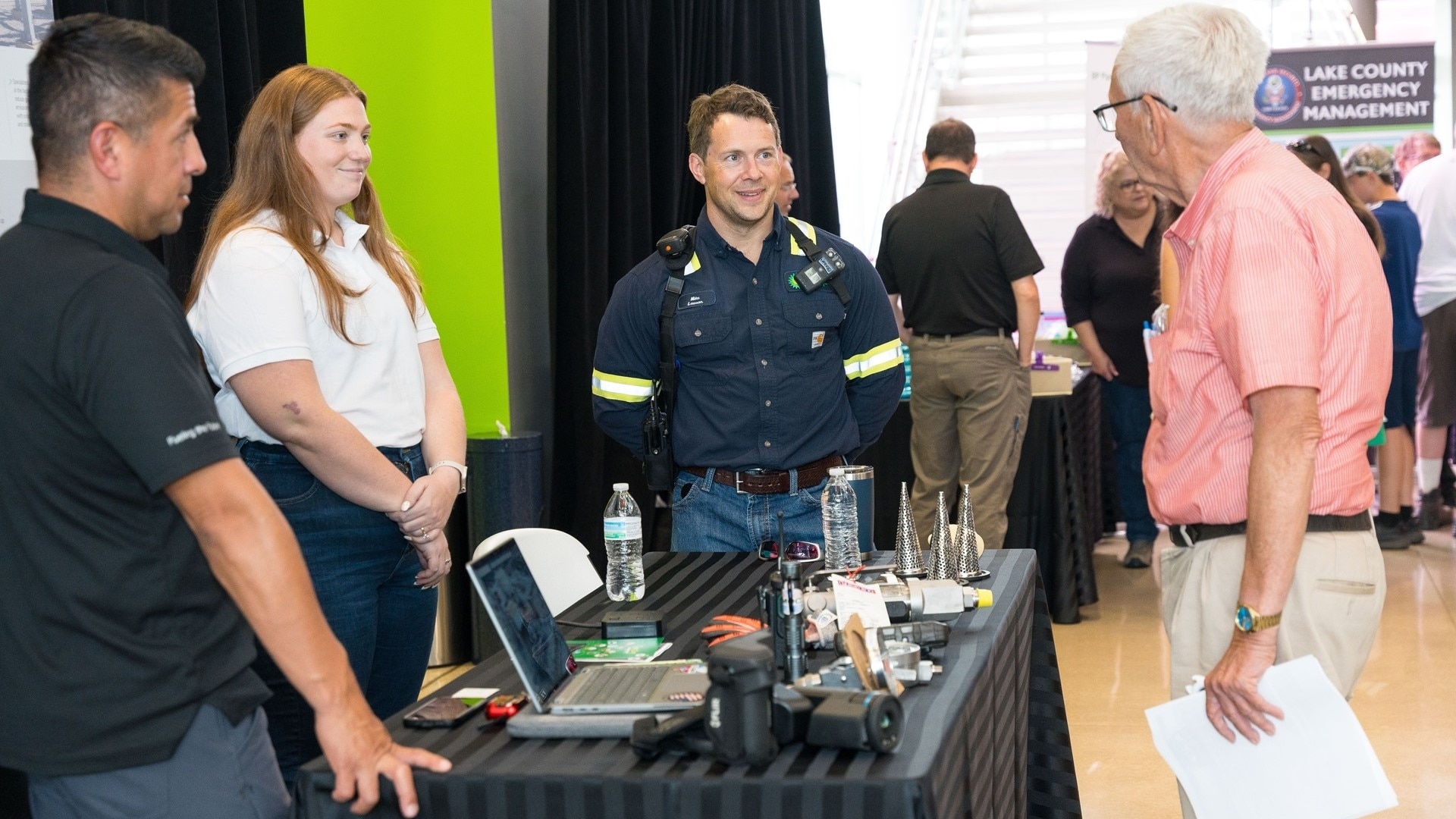Whiting refinery

Located in northwest Indiana, about 17 miles from downtown Chicago, the Whiting refinery is bp's largest refinery and critical for the region’s economy and employment. bp is committed to continue being a good neighbor for another 100 years and beyond.



Whiting refinery
- The Whiting refinery processes around 440,000 barrels of crude oil every day and produces a wide range of liquid fuels.
- The refinery has more than 1,300 bp employees and 1,400 contractors and supports more than 86,000 jobs in the region.
- In 2023, the Whiting refinery spent more than $1 billion with vendors.
- bp’s Whiting refinery provides gasoline to states across the Midwest and can produce enough fuel each day to support the average daily travel of more than 7 million cars.1
- The refinery produces about 7% of all asphalt in the United States.
1 Calculation based on the average amount of gasoline an American passenger car uses each day.
What is a flare?
A flare stack is a tall, narrow structure that can be seen in refineries and other industrial processing plants that burns excess material. During startups, shutdowns or incidents at refineries, flares act as safety valves, releasing pressure and burning excess material.
How many flares does the Whiting refinery have?
The Whiting refinery has 9 flares. Each of the flares supports a specific area or specific units in the refinery.
What is happening at the refinery where there is flaring?
Flaring can be seen when units are starting up or shutting down or, in some instances, experiencing an upset. When an upset leads to flaring, operators work to try to find the source of the issue on the impacted unit or units and respond to the flaring as quickly and safely as possible.
How does bp monitor air quality?
The refinery monitors the air quality by using a combination of stationary and mobile air monitors.
Where can I see the air quality results for my community?
Federal regulations require bp to maintain fence line monitors and to submit the results to regulators. The US EPA manages how that data is made available to the public.
Is there any additional data that can be shared?
As part of a recent settlement reached with regulators, bp has also agreed to install additional air monitoring equipment, including one new monitor within the refinery fence line, three new monitors at the refinery fence line, and 10 new monitors outside the refinery fence line in the surrounding community. bp is developing a public website that will be available beginning in summer 2024 to host sampling data from these new community air monitors.
What are the air quality impacts of a flare?
If a flare is operating normally, there should be minimal air quality impacts. During a flaring event, air emissions are closely monitored and reported to regulators.
What causes the odors I smell from the refinery?
During flaring, material is combusted, and that process can, at times, result in odors. Some of this material can produce odors that humans can perceive at very low concentrations but are well below the concentrations that may affect human health. Additionally, we take steps to try to minimize odors from the refinery that may impact local residents. In a heavily industrialized area like the one in which Whiting sits, the source of any particular odor is not always easily identifiable in the absence of additional data.
We are focused on STEM education, conservation and community events, such as the Process Tech program, Student Conservation Association, and Pierogi Fest.
We provide financial support and our employees volunteer as mentors for a STEM education initiative called the Process Tech program at Ivy Tech Community College. The program helps students exploring STEM careers.
Since 2015, we have been partnering with the Student Conservation Association (SCA), which inspires young adults ages 18 to 25 to pursue conservation through urban forestry projects that restore native habitats of trees and vegetation.

Looking to the future
bp recognizes the need to continue providing the world with the fuel it needs today, while at the same time investing in lower carbon energy solutions for the future. We are committed to helping deliver secure, affordable and lower carbon energy.
That is why we are evaluating plans at the Whiting refinery for lower-carbon products like biofuels, hydrogen and Sustainable Aviation Fuel (SAF).
In October 2023, bp and the Midwest Alliance for Clean Hydrogen – the MachH2 coalition – announced their selection by the US Department of Energy for regional clean hydrogen hub funding. bp is looking to develop blue hydrogen production at or near our Whiting refinery.
Meet the executive leading the Midwest’s largest refinery
Chris DellaFranco, Whiting refinery’s top leader, shares insights on the energy industry, innovation, safety, and building trust with communities.
Whiting refinery: Committed to being a good neighbor to NWI
Whiting refinery leadership reaffirms commitment to communication, transparency and engagement with Northwest Indiana.
Contact us
General information
For questions and more information about Whiting refinery, please contact whitingrefineryexternalaffairs@bp.com.
Media inquiries
For questions from the media, please contact uspress@bp.com.
Social media
Stay updated by following the new Whiting refinery Facebook page. For information about bp America, follow us on Facebook and X.
Text message
Elect to receive Whiting refinery text message alerts through Smart 911 .













